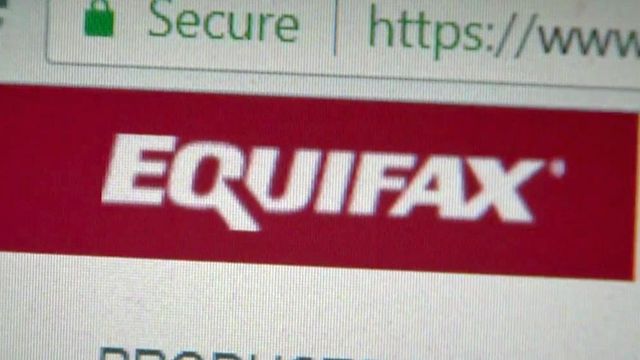Fraud alert, credit freeze can help protect money after Equifax breach
After an Equifax breach impacted more than 145 million people, many have been considering setting up fraud alerts and credit freezes, but some aren't clear on the difference between the two.
Posted — UpdatedThe Equifax hack left the personal information of millions out in the open, and Consumer Reports said the simplest way to defend yourself is to put a fraud alert in place, warning prospective lenders that your information is compromised.
“A fraud alert requires a lender to take reasonable extra steps to confirm that the person trying to open a new credit account is in fact you,” said Consumer Reports Money editor Margot Gilman.
Activating a standard fraud alert is free. People just need to contact one of the three big credit bureaus- Equifax, Experian or TransUnion- which are then supposed to pass it on to the other two.
“Typically, a fraud alert lasts 90 days, which means you have to re-up every three months. But, on the plus side, you’re entitled to a free credit report every time you do,” Gilman said.
A stronger defense option is a credit freeze, which needs to be requested from each of the three major credit bureaus.
In North Carolina, there is no fee to get a credit freeze, which is the single most effective way to protect against credit fraud.
“Most creditors need to see your credit report before they issue you new credit, but if you have a freeze on your account, they can’t pull your file and may not extend you credit, which should stop fraudsters,” Gilman said.
The downside to a credit freeze is that it could also shut out companies with which you do business. So, a person in the market for a car or home loan should complete those transactions before instituting the freeze, or they may get hit with extra fees to lift and reinstate it.
If a person can prove they’re already a victim of identity theft, a seven-year extended fraud alert is also available.
Consumer Reports also advises setting up and activating two-factor authentication, which can be used on mobile banking apps, credit cards and even home equity lines of credit.
“It’s an important extra layer of protection. It’s your password plus a code that’s texted to your cell phone that only you have, or it’s your password plus, say, a scan of your fingerprint,” Gilman said.
Next, experts advise securing mutual funds. Many people don’t realize that investment firms aren’t required to restore assets stolen by hackers.
Two big firms, Fidelity and Vanguard, do have reimbursement policies in online hacking cases, but people should check coverage details with their investment manager.
“If your investment company doesn’t explicitly say that it reimburses stolen funds, consider moving your money elsewhere,” Gilman said.
People should get a copy of their credit report to monitor it for fraud and keep security measures updated on any computers or devices used to access financial information.
• Credits
Copyright 2024 All Consumer Reports material Copyright 2017 Consumer Reports, Inc. ALL RIGHTS RESERVED. Consumer Reports is a not-for-profit organization which accepts no advertising. It has no commercial relationship with any advertiser or sponsor on this site. For more information visit consumer.org (http://consumer.org/)






